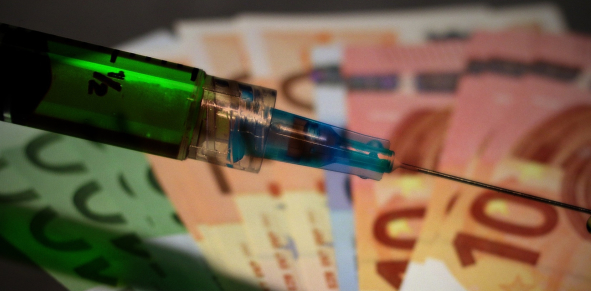Dallas criminal defense lawyer explains Coronavirus Vaccine Scam
Unfortunately, there will always be people who attempt to profit off a tragedy or disaster. With the coronavirus pandemic becoming more widespread in the United States, a variety of scams and price gouging schemes have appeared online.
Now, the U.S. Department of Justice (DOJ) is cracking down on individuals looking to make a quick buck off the pandemic. The DOJ also urged regular Americans to report any scam they see online.
DOJ Brings Enforcement Action Against Coronavirus Scammer
In March 2020, the DOJ released a statement that it filed its first enforcement action in federal court in Texas against the individuals behind a website purporting to sell so-called “vaccine kits” to the public.
According to the DOJ, the defendant, who is so far unnamed, is accused of “engaging in and facilitating a predatory wire fraud scheme exploiting the current COVID-19 pandemic.”
The website, which claimed it had vaccine kits, inaccurately stated that the sellers had secured vaccine kits from the World Health Organization (WHO) and was selling them to the public for free as long as buyers covered the $4.95 shipping charge.
The website also posted an image of the head doctor from the National Institute of Allergy and Infectious Diseases from the National Institutes of Health — most likely in an attempt to induce people to believe the site was backed by these organizations.
However, as of March 2020, there is no vaccination for the coronavirus or the COVID-19 disease it causes. Furthermore, there is no known treatment or drug specifically for coronavirus. There is also no publicly available vaccine or testing kit a regular person can purchase over the internet.
According to the DOJ, the likely goal behind the scheme was to get people to pay $4.95 and possibly get their credit card numbers for purposes of identity theft.
After the DOJ’s announcement, the site was taken offline. Additionally, the FBI has stated that it is continuing to investigate the owner behind the website. Unfortunately, the DOJ has indicated this particular scam is probably just one of many that will continue to crop up as the pandemic accelerates.
How to Avoid Being a Victim of Online Fraud
As the coronavirus pandemic has become more widespread in the U.S., there have already been reports of things like price gouging on sites like Amazon and eBay. Additionally, people have reported seeing sites that fraudulently claim their product can cure the virus or prevent people from getting it.
Additionally, the attorneys general in states like New York and Missouri have issued orders to televangelist Jim Bakker and others, ordering them to stop selling vitamins and other products that claim to stop the virus or make people immune to it.
There have also been fraudulent sites that solicit donations to various causes and charities that claim to be connected to groups that help victims of the virus. While some of these groups are legitimate, others are nothing more than an illegal money-making scheme.
If you’re concerned about falling victim to a coronavirus scheme, there are steps you can take to protect yourself.
- Verify emails – Don’t assume that an email you receive is legitimate. Many scammers know how to make an email appear as if it originates from a well-known company, such as Apple.
When you dig a little deeper, however, you find that the email is fake. Never click links embedded in an email. Instead, open a new browser window and go directly to the website for a company, entity, or charity.
- Double check websites – Also, be wary of websites that appear official but are not the real website of a government organization. For example, a scammer might use a website like cdc.com and create a website that mimics the real CDC. However, the CDC government organization has a website that ends in .gov.
- Be wary of any solicitation that offers you a cure or a vaccine – According to the DOJ, the government doesn’t reach out directly to people, offering or promising vaccines or drugs.
If you receive an email like this, delete it without opening it. Also, be cautious about giving to GoFundMe accounts unless you can verify that the organization or individual behind the account is legitimate.
- Donate directly to charities you trust – Reputable charities have official websites that give people clear directions about how they can donate. Typically, they don’t solicit donations through email.
If you want to donate money to a cause you care about, it’s best to reach out to the charity on your own. That way, you know where your money is going, and you can get a record and receipt of your donation for tax purposes.
- Avoid wire transfers and similar payment methods – Online scammers will often ask people to send money by way of a gift card, wire transfer, or similar method. This can be a sign of a scam.
BY: https://www.brodenmickelsen.com/
Sources:
- https://www.justice.gov/opa/pr/justice-department-files-its-first-enforcement-action-against-covid-19-fraud
- https://www.justice.gov/opa/press-release/file/1260126/download
- https://abcnews.go.com/US/ny-attorney-general-orders-televangelist-jim-bakker-stop/story?id=69472032
This news has been published for the above source. Kiss PR Brand Story Press Release News Desk was not involved in the creation of this content. For any service, please contact https://story.kisspr.com.







